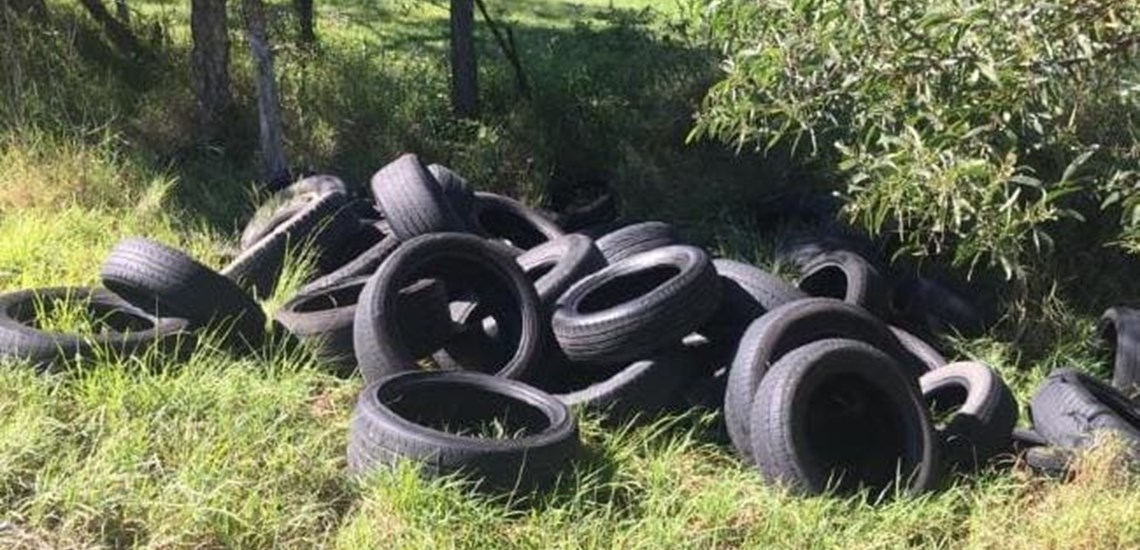Australian recyclers may not be using the recycling fee effectively. Tyres are being stockpiled or landfilled rather than being recycled.
Australian Recycling Challenges
Reports in the Brisbane Times and the Sydney Herald carry stories of problematic tyre recycling operations. In the first report William Amiot, co-founder of Brisbane tyre recycling company TyreStock, estimated Australia recycled just 3 million of the 22 million tyres replaced every year.
The tyre recycling fee for a car tyre is $5AUS, but the collectors are taking the fee, and, according to Amiot, are pocketing $3AUS from every tyre collected. He estimates that more than $100m AUS has been skimmed out of the recycling fees.
Tyres collected are not, according to Amiot, being recycled, but they are being landfilled or stockpiled, unless they are exported – and that export market is a loophole that the Australian government plans to plug with its ban on most waste exports.
TSA chief executive Lina Goodman believes Mr Amiot has identified a significant problem.
“I agree with him. That’s an absolute disgrace,” she said.
“If you think about poor collectors and recyclers, it is not a bad business model, is it?
“You go around and collect your tyres from retailers, take your share of the tyre disposal levy, stockpile it, and then it’s some other poor sod’s problem to come and collect it.
“It’s the community that usually has to pay for it.”
Goodman disputed Amiot’s figures. “Of the 22 million passenger tyres, there has been a 25 per cent increase in the number of tyres sent to become crumbed rubber in the past 12 months,” she said.
“That equates to 4 million tyres that are being used in road, railways (as sound-dampening mats) and in civil applications.”
Ms Goodman said 16 million tyres were processed into fuels, which are exported to Asia for cement kilns.
She said most of those tyres were from passenger vehicles, while Mr Amiot said they were from heavy vehicles.
In the meantime, six Queensland tyre recyclers have been reported to the Queensland government by the Australian Tyre Recyclers’ Association.
Robert Kelman, from the ATRA, said, “We have six operators throughout Queensland that we are asking the department questions [about] – their legitimacy in terms of having firefighting equipment, the appropriate bunding and appropriate retention ponds if they do have a fire and there are hundreds of millions of litres of water on the site.”
Queensland would have new tyre monitoring regulation in place by the end of November 2019, Kelman said.
“Now the regulations are almost in place, and everyone should have licences, we are asking that the environment department set aside a couple of people for six months and they go through those people and see if they comply with the regulatory conditions.”
Tyre recycling companies needed to have fire hydrants, suitable firefighting equipment on-site, bunding and retention ponds, he said.
“We don’t believe any of these firms do,” Mr Kelman said.
However, he said the industry had another problem, which he had asked the Australian Tax Office to investigate: some tyre collectors would offer a cheaper rate “for cash”.
Source: Brisbane Times/ Sydney Herald




















